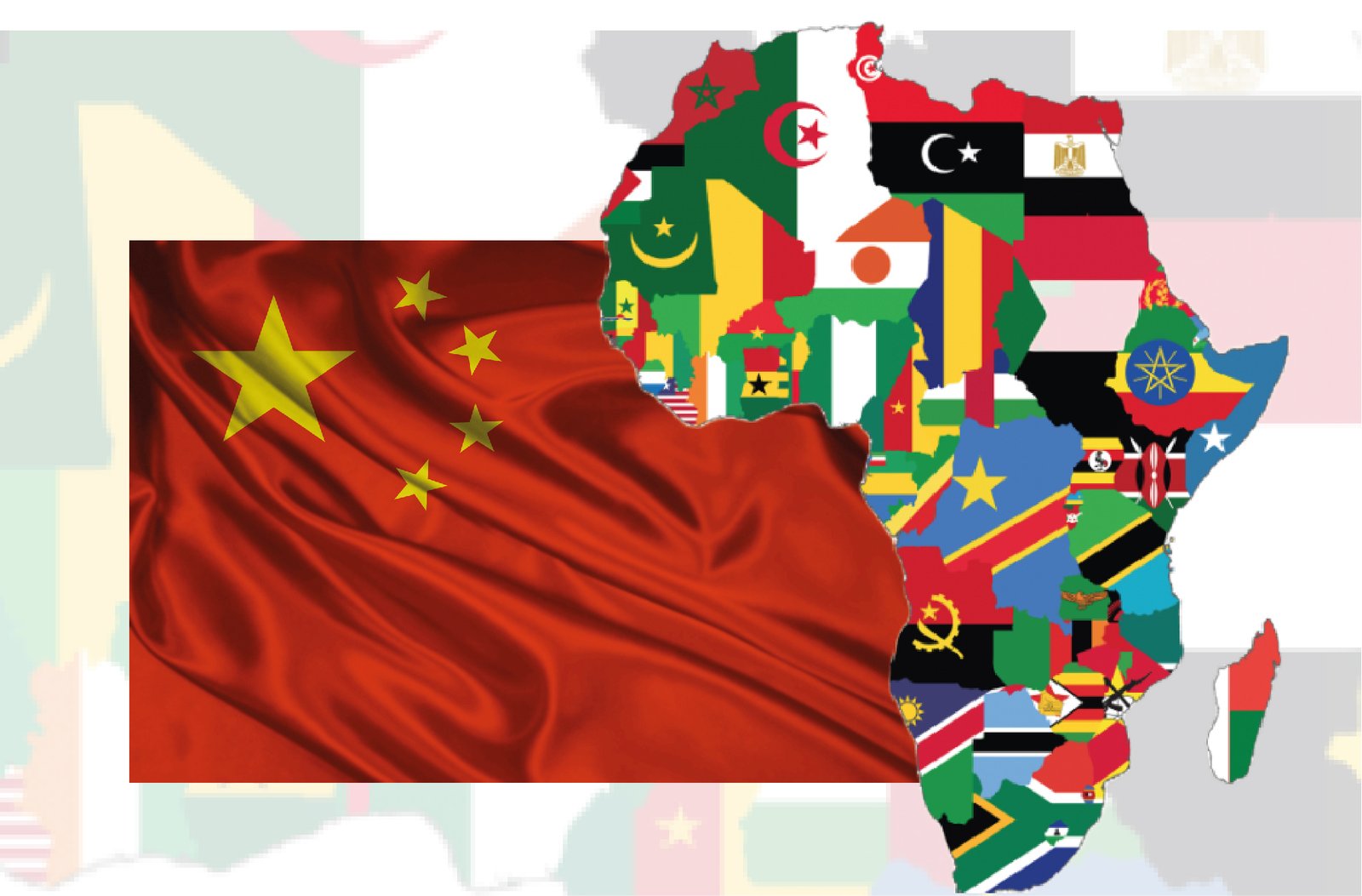
Introduction to the Beijing Summit 2024
The upcoming Beijing Summit of the Forum on China-Africa Cooperation (FOCAC) in 2024 marks a significant moment in global diplomatic relations. This summit represents a critical opportunity for both China and African nations to enhance cooperation and strengthen partnerships that have been evolving over recent years. The FOCAC has consistently played a vital role in shaping the dialogue between African scholars and Chinese leaders, fostering an environment conducive to mutual growth and development.
China, under the leadership of President Xi Jinping, has emerged as a pivotal player in Africa’s development landscape. This emergence is evident through substantial investments in infrastructure, education, and technological advancement across the continent. Institutions such as Zhejiang Normal University have served as platforms for African scholars like Professor Yoro Diallo and Dr. Taling Tene Rodrigue to engage in meaningful exchanges that address local challenges and propose innovative solutions. The collaborative efforts between Chinese institutions and African academia are crucial in nurturing effective partnerships and enhancing research capabilities vital for both regions.
The significance of the 2024 Beijing Summit extends beyond mere diplomatic engagements; it embodies a renewed commitment to addressing pressing global challenges. With increased emphasis on sustainable development and climate resilience, discussions at the summit are expected to reflect the aspirations of both Chinese and African nations to contribute positively to the global community. The integration of the African perspective in multilateral forums signifies a shift toward inclusive policymaking, recognizing the unique challenges and opportunities faced by African nations.
As we approach this important event, it is essential to acknowledge the collaborative spirit that underpins China-Africa relations. The Beijing Summit will not only solidify existing partnerships but also pave the way for new avenues of cooperation, thereby reinforcing the ties that bind these two regions in a shared future.
Xi Jinping’s Vision for China-Africa Relations
Chinese President Xi Jinping has articulated a compelling vision for fostering robust ties between China and African nations. His remarks underscore the importance of African scholars in contributing intellectual resources to the ongoing dialogue on building a high-level China-Africa community. This collaboration extends beyond mere diplomacy; it encompasses a holistic approach that integrates economic, cultural, and educational exchanges aimed at mutual benefit.
At the heart of Xi’s vision is the concept of mutual growth and shared prosperity. He has urged African scholars, including prominent figures such as Professor Yoro Diallo from Zhejiang Normal University and Dr. Taling Tene Rodrigue, to engage in both theoretical and practical frameworks that facilitate collaboration between China and Africa. By recognizing the unique perspectives and knowledge that African scholars can provide, Xi Jinping aims to establish a partnership that is fundamentally grounded in equality and respect.
This commitment to collaboration is particularly vital in various sectors, including technology, education, infrastructure, and healthcare. President Xi has emphasized that enhancing cooperation in these fields is essential for accelerating socio-economic development in Africa while also benefiting China’s strategic interests. The forum on China-Africa cooperation serves as a platform where ideas proliferate, and initiatives can be implemented, reinforcing the interconnectedness of the two regions.
Moreover, Xi’s advocacy for African intellectual engagement reflects a broader strategy to create win-win scenarios that are sustainable over time. By highlighting the role of African scholars in shaping this vision, he aims to build a robust framework for future interactions, which is essential for the evolving dynamics of global partnerships. Engaging with these scholars fosters mutual understanding conducive to addressing challenges facing both China and African nations, ultimately paving the way for a collaborative future.
The Role of Scholars in Strengthening China-Africa Ties
The collaboration between China and Africa has seen significant advancements in recent years, with an increasing reliance on knowledge sharing and intellectual contributions from African scholars. Influential figures such as Professor Yoro Diallo and Dr. Taling Tene Rodrigue have emerged as pivotal personalities, engaging in academic dialogues that are essential for fostering mutual understanding and cooperation. These scholars harness their expertise to analyze the intricacies of Sino-African relations, offering unique insights that can guide policy formulation within the framework of the Forum on China-Africa Cooperation.
Academic engagement plays a vital role in shaping the narrative around sustainable development and economic growth. African scholars contribute to this discourse by addressing the challenges and opportunities that arise in the context of cooperation with China. The involvement of renowned institutions, such as Zhejiang Normal University, allows for a more structured approach to these discussions, serving as a platform where ideas can flourish and where the voices of African academics can be amplified. By conducting research and sharing findings, scholars like Professor Diallo and Dr. Rodrigue influence policymakers and stakeholders, thus facilitating informed decisions that benefit both regions.
Additionally, cultural exchange initiatives fostered by African scholars enhance the collaborative framework between China and Africa. By emphasizing shared histories and values, they help cultivate a mutual respect that underpins diplomatic relations. Chinese President Xi Jinping’s engagement in this dialogue further exemplifies the importance of intellectual contributions at the highest levels of government. The synergy created through academic partnerships and cooperative efforts accelerates the development of policies aimed at harnessing the potential of both nations, paving the way for robust and sustainable relations. In conclusion, the role of African scholars is indispensable in the ongoing transformation of China-Africa cooperation, ensuring that it evolves in a manner that is beneficial for all parties involved.
Profiles of Key Scholars: Yoro Diallo and Taling Tene Rodrigue
Professor Yoro Diallo and Dr. Taling Tene Rodrigue are distinguished African scholars whose work significantly impacts the discourse surrounding China-Africa cooperation. Their academic contributions and engagement in various forums, such as the Forum on China-Africa Cooperation, play a pivotal role in fostering collaborative ties between the two regions. Professor Diallo, affiliated with Zhejiang Normal University, focuses on the intersection of economic development and international relations. His research emphasizes the importance of African perspectives in global discussions, particularly those related to Chinese investment and infrastructure projects across the continent.
Dr. Rodrigue, on the other hand, specializes in cultural exchanges and the effects of globalization on African societies. His work critically examines how African nations can leverage partnerships with China to enhance their own socio-economic development while preserving cultural identity. By highlighting the experiences of various African communities, he advocates for a balanced exchange that respects the autonomy and agency of African nations in their interactions with foreign powers, including China, led by Chinese President Xi Jinping.
The insights provided by Professor Yoro Diallo and Dr. Taling Tene Rodrigue are instrumental in shaping the narratives surrounding the dynamics of China-Africa relations. Their compelling arguments and empirical research help to challenge and deconstruct prevailing stereotypes, thus paving the way for more nuanced understanding and dialogue between the two regions. Both scholars are committed to bridging gaps in knowledge and facilitating meaningful conversations that could lead to productive partnerships beyond mere economic transactions. Their contributions serve as a reminder of the potential for collaboration, engagement, and shared goals, making them quintessential figures in the ongoing dialogue about China-Africa cooperation.
The ‘Global South’ Perspective on China-Africa Cooperation
The term “Global South” refers to a collective grouping of developing nations primarily located in Africa, Latin America, the Caribbean, and parts of Asia. This categorization not only encompasses countries with similar socio-economic challenges, but also highlights the potential for collaboration towards overcoming these challenges. Professor Yoro Diallo, a prominent advocate for African scholarship, emphasizes that nations within the Global South often share interests that transcend geographical boundaries. In this context, China and Africa’s relationship emerges as a pivotal example of mutual cooperation and shared goals.
In recent years, forums on China-Africa cooperation have become instrumental in fostering dialogue and understanding between these regions. Notably, initiatives like the Forum on China-Africa Cooperation (FOCAC) demonstrate a commitment to establishing a partnership that prioritizes development, trade, and investment. Central to this collaboration is the recognition that both regions face similar challenges, such as limited access to advanced technology, climate change vulnerabilities, and the need for sustainable development. Chinese President Xi Jinping has underscored the importance of working together with African nations to promote socioeconomic growth, addressing these shared obstacles in a holistic manner.
The collaboration between China and African scholars, such as Dr. Taling Tene Rodrigue from Zhejiang Normal University, reveals a deeper commitment to integrating local knowledge with foreign investment. Such partnerships promote capacity building in African institutions, enhancing their ability to foster innovation and effectively respond to global challenges. Through initiatives like these, the Global South can articulate a unified stance on crucial issues such as climate change and trade dynamics, consolidating their influence in an increasingly interconnected world. Overall, this cooperation between China and Africa offers a framework for other developing nations to engage meaningfully in the global arena, amplifying their collective voice in international discourse.
Intellectual Support as a Foundation for Development
The role of intellectual support from scholars is critical in laying the groundwork for development initiatives within the context of China-Africa cooperation. Scholars, such as Professor Yoro Diallo and Dr. Taling Tene Rodrigue, offer invaluable insights and expertise that can significantly influence various sectors. Their contributions often extend to technology transfer, education, health, and infrastructure development, facilitating tangible benefits for African nations and enhancing the overall cooperation agenda.
One of the most prominent areas where intellectual support can make a difference is technology transfer. African scholars have been increasingly involved in collaborative research projects with Chinese institutions, such as Zhejiang Normal University. These partnerships often result in the sharing of innovative technologies tailored to local needs, improving efficiency and effectiveness across numerous sectors. Such collaborations not only enhance technological capabilities but also ensure that these advancements are sustainable and accessible to the communities most in need.
In education, the intellectual contributions of African scholars lead to the development of curriculum and teaching methodologies that are relevant to local contexts. This academic engagement fosters a new generation of educated professionals who are equipped to address pressing challenges faced by their countries. Furthermore, these scholars often play vital roles in mentorship programs that further the development of future leaders in various sectors.
Health is another critical area where scholarly insight is imperative. Research conducted by African scholars can inform health policies that align with the needs of local populations, thereby yielding health outcomes that improve quality of life. Infrastructure projects, supported by academic research, also benefit from scholars’ ability to analyze data and offer sustainable solutions that reflect both resource availability and community needs.
In conclusion, the intellectual support provided by African scholars is foundational to fostering strong development initiatives. Through their expertise, they contribute significantly to the pillars of China-Africa cooperation, paving the way for mutual growth and advancement in various fields.
Current Initiatives and Future Prospects
The cooperation between China and African nations has seen a myriad of initiatives in recent years, fostering economic growth and strengthening ties across various sectors. The Belt and Road Initiative, for instance, has been instrumental in enhancing infrastructure development throughout the African continent. This ambitious program aims to improve connectivity and trade routes, allowing nations to boost their economies and gain access to international markets. As underscored by Professor Yoro Diallo from Zhejiang Normal University, these infrastructure projects hold the potential to transform not only economies but also the socio-political landscape of Africa.
In education, collaborations between Chinese and African universities have been gaining momentum. Dr. Taling Tene Rodrigue emphasizes the importance of academic exchanges and joint research initiatives, which contribute to the development of knowledge and skills among African scholars. Such partnerships extend beyond academia, fostering a deeper understanding of shared challenges and promoting innovative solutions. The establishment of research centers and scholarship programs is a testament to the commitment to education and capacity-building as integral components of the cooperation between China and African countries.
Looking ahead to the 2024 Beijing Summit, the anticipated outcomes revolve around enhancing existing partnerships and pursuing new areas of collaboration. China seeks to further solidify its role in Africa by addressing pressing issues such as climate change, healthcare, and technology transfer. With Chinese President Xi Jinping’s vision leading the charge, both sides are expected to explore strategies enabling sustainable development while fostering mutual growth. The Forum on China-Africa Cooperation will undoubtedly play a pivotal role in shaping these plans, heralding a new chapter in the cooperation between China and Africa.
In conclusion, the initiatives underway, alongside the collective aspirations leading to the Beijing Summit, signify a robust and evolving partnership. This journey promises to usher in increased opportunities for collaboration and development, benefiting both China and African nations.
Challenges in China-Africa Relations
As China-Africa relations evolve, several significant challenges have emerged that demand attention from scholars, policymakers, and multinational organizations. One prominent issue is the perception of neocolonialism in engagements between African nations and China. Critics argue that China’s extensive investment initiatives, characterized by infrastructure development and resource extraction, mimic colonial patterns, leading to a dependency that undermines African sovereignty. The views of African scholars, such as Professor Yoro Diallo and Dr. Taling Tene Rodrigue, encapsulate the concerns surrounding these dynamics. They advocate for a more equitable partnership that prioritizes African agency and self-determination while receiving Chinese investments.
Economic dependency is another challenge that is often highlighted in discussions regarding the China-Africa partnership. African states, in their quest for economic growth and development, can find themselves increasingly reliant on Chinese capital and expertise. Such dynamics can lead to imbalances that favor one party over the other. This situation can stymie local development initiatives and inhibit the region’s ability to cultivate a diverse economic landscape, as dependence on foreign investments can overshadow indigenous entrepreneurship. As these discussions progress, it is essential for stakeholders to critically analyze the implications of this dependency to foster a more sustainable approach.
Geopolitical pressures further complicate the narrative surrounding China-Africa relations. With Chinese President Xi Jinping reaffirming his commitment to Africa during the Forum on China-Africa Cooperation, it is crucial to balance national interests while addressing the concerns of African states. Ultimately, promoting transparency and collaborative dialogue is necessary to address the apprehensions regarding neocolonialism, economic dependency, and geopolitical influences. Through such initiatives, nations can ensure that the partnership remains mutually beneficial, paving the way for a collaborative and prosperous future.
Conclusion: A Call to Action for Scholars and Leaders
The future of China-Africa cooperation is poised at a pivotal moment, particularly as the 2024 Beijing Summit approaches. The importance of this partnership cannot be overstated, as it represents a significant opportunity for both regions to foster sustainable development and mutual growth. Scholars and leaders play an instrumental role in shaping this cooperation, guiding initiatives that can lead to tangible benefits for their respective nations and communities. Professor Yoro Diallo and Dr. Taling Tene Rodrigue are just a few examples of African scholars who are actively contributing to this dialogue, showcasing their expertise in areas that align well with the objectives of the Forum on China-Africa Cooperation.
Moreover, the leadership provided by figures such as Chinese President Xi Jinping is crucial in cementing the commitments made between China and African nations. Zhejiang Normal University, along with other academic institutions, stands as a testament to the collaborative efforts being made to enhance educational ties and research partnerships. By fostering networks among scholars, these platforms can serve as a springboard for innovative ideas that address the unique challenges both regions face.
As this partnership evolves, there is an urgent need for proactive involvement from all stakeholders. This is a call to action for not only scholars and academic institutions but also governmental leaders and policymakers to engage in thoughtful dialogue. Intellectual engagement is fundamental in realizing a high-level community with shared beliefs and objectives. By working collectively, stakeholders can ensure that the cooperation between China and Africa yields benefits that resonate across socio-economic landscapes, thereby fulfilling the promise outlined in letters from China. Embracing these collaborative frameworks will be essential in navigating the complexities of this relationship moving forward.





